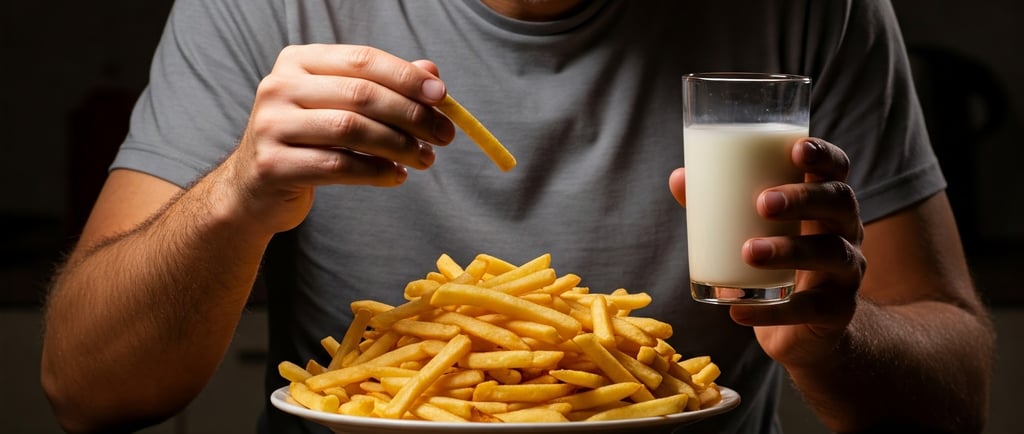The Psychology of Food Cravings—Why Do We Always Want Midnight Snacks?


Midnight snacking is a common behavior that many individuals experience, often leading to curiosity about its underlying causes. Understanding the psychology behind these late-night food cravings involves exploring various factors, including biological rhythms, hormonal influences, emotional states, and lifestyle habits.
Circadian Rhythms and Evening Appetite
Our body's internal clock, known as the circadian rhythm, plays a significant role in regulating hunger patterns. Research indicates that the circadian system increases hunger and cravings for sweet, starchy, and salty foods in the evenings. This inclination may have evolutionary roots, as consuming higher-calorie foods in the evening could have helped our ancestors store energy for periods of scarcity. However, in today's environment of abundant food availability, this tendency can contribute to overeating and weight gain.
Hormonal Influences on Late-Night Cravings
Hormonal fluctuations throughout the day can impact our desire to eat at night. For instance, imbalances in hormones such as insulin and cortisol can lead to increased appetite and cravings during the evening hours. Additionally, disruptions in sleep patterns can affect the release of ghrelin and leptin, hormones responsible for regulating hunger and satiety, potentially leading to increased nighttime food intake.
Emotional and Psychological Factors
Emotions significantly influence eating behaviors, particularly during nighttime hours when individuals may experience increased stress, boredom, or loneliness. Food can serve as a coping mechanism, providing temporary comfort or distraction from negative feelings. This emotional eating often involves cravings for high-calorie, palatable foods that stimulate the brain's reward system, reinforcing the behavior.
Nutritional Deficiencies and Meal Patterns
Irregular eating patterns or inadequate nutrition during the day can lead to increased hunger and cravings at night. Skipping meals or not consuming enough calories can cause blood sugar fluctuations, prompting the body to seek quick energy sources, often in the form of late-night snacks. Ensuring balanced meals and regular eating intervals throughout the day can help mitigate these nighttime cravings.
Strategies to Manage Midnight Cravings
To address and reduce late-night food cravings, consider implementing the following strategies:
Maintain Regular Meal Schedules: Consuming balanced meals and healthy snacks at regular intervals during the day can help stabilize blood sugar levels and reduce the likelihood of nighttime hunger.
Stay Hydrated: Sometimes, the body can misinterpret thirst as hunger. Drinking adequate water throughout the day can help differentiate between true hunger and thirst cues.
Manage Stress and Emotions: Engaging in stress-reducing activities such as meditation, deep breathing exercises, or gentle physical activity can help manage emotional triggers that lead to nighttime eating.
Establish a Consistent Sleep Routine: Prioritizing good sleep hygiene by maintaining a regular sleep schedule and creating a relaxing bedtime routine can improve sleep quality and reduce disruptions that lead to late-night eating.
Plan Healthy Evening Snacks: If nighttime hunger persists, opting for nutrient-dense, low-calorie snacks such as fruits, vegetables, or yogurt can satisfy cravings without compromising health goals.
Understanding the multifaceted reasons behind midnight food cravings empowers individuals to make informed choices and develop strategies to manage this common behavior effectively.
